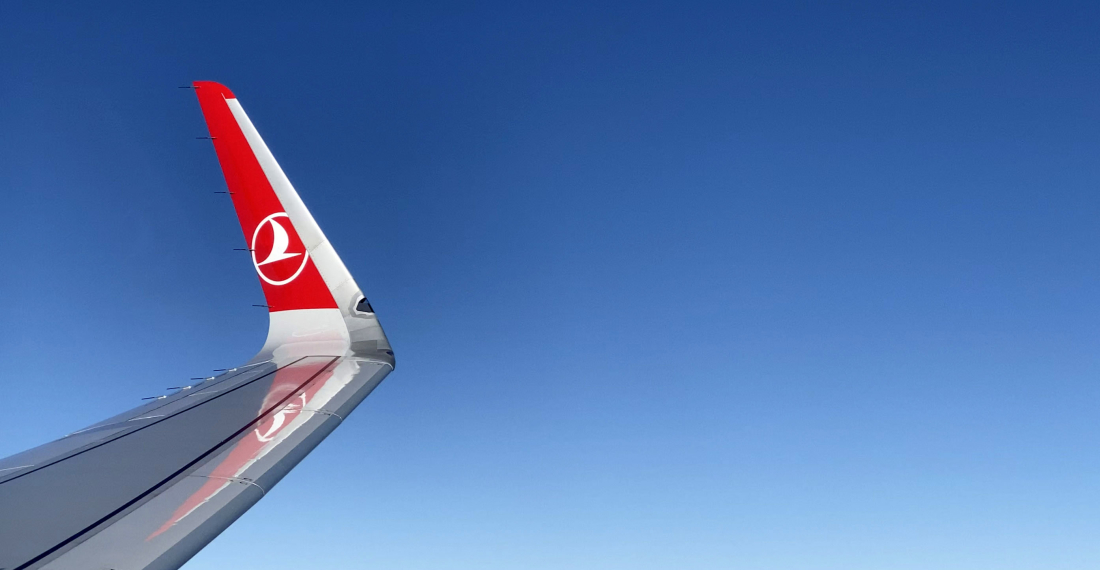“Welcome to Armenia,” the pilot’s voice came over the tannoy as the Turkish Atlasjet flight touched down in Yerevan some time in 2011. “The temperature outside is…” A normal announcement on any flight. This one, however, came in Turkish before being repeated in English. In Armenia. That was 14 years ago now. Despite the lack of diplomatic relations between the two countries, the flights have existed for years albeit with some interruptions and later operated by Pegasus and Flyone.
My flight to Istanbul was to make a presentation on my work on Armenian-Azerbaijan reconciliation and coexistence for the Hrant Dink Foundation. The organisation was holding a multimedia workshop for journalists and photographers from Armenia and Türkiye and understood how the two processes were linked even if many have long preferred that they weren't.
Without the flight operated by Armenia’s Armavia and Turkiye’s Atlasjet, I would have had to travel from Yerevan by road to the Georgian capital, Tbilisi, and fly from there. The Armenians onboard travelled to Istanbul empty handed but on the way back were weighed down by an astonishing number of large plastic market bags ferrying goods from Türkiye to sell in markets in Armenia.
Just like the Turkish spoken by the pilot landing in Yerevan, it too was a surreal experience. Even the Turkish flight attendants spoke some basic Armenian for performing their basic duties onboard. Those flights might soon advance further.
According to media reports at the weekend, Turkish Airlines, Türkiye’s national flag carrier, plans to operate flights to and from Armenia. Though this was not a public announcement, it was a filing on Türkiye’s Public Disclosure Platform (KAP), an official system. No dates or other details were provided, instead emphasising that this would occur subject to market conditions and public demand.
Nonetheless, the Board of Directors of the airline in which the Turkish government has a controlling share, are reported to have approved the launch of such flights. The decision to do so has potentially huge significance. Although Armenia-Türkiye flights have been operating since 1995, serviced at first by Armenian Airlines, flight carriers from Türkiye did not at first follow suit.
That only happened in the very early 2000s, largely the result of Turkish-Armenian businessman Tigran Altun who approached various airlines in his home country to launch such flights as well. In a 2015 interview, Altun said that though Turkish Airlines had been considering the route for several years, the Turkish Ministry of Foreign Affairs had prohibited it.
He concluded at the time that the national flag carrier could only do so with the approval of Azerbaijan. It is unclear whether the same is the case today, but it makes it even more significant if it is. Türkiye had closed its air and land borders with Armenia in 1993 when Armenian forces captured and occupied the Kelbajar region of Azerbaijan that same year. Only the air border was reopened in 1995.
In a 2009 report on Armenia-Türkiye normalisation, the International Crisis Group (ICG) considered the move an important development but noted that would be even more significant if government-linked Turkish Airlines was to operate the route just as the Armenian national carrier at the time, Armavia, did.
The news about Turkish Airlines also comes after the latest meeting between the Armenian and Türkiye special envoys on normalising relations, Ruben Rubinyan and Serdar Kılıç, for the first time held last month in Yerevan. The identical official statements issued afterwards noted that additional flights between the sides could start in the summer of 2026.
Though Armenian Prime Minister Nikol Pashinyan denies any connection, a day before that meeting his government decreed that Mount Ararat, known as Mount Ağrı in Türkiye, would no longer be displayed on Armenian border entry and exit stamps starting 1 November. The biblical mountain situated on the border between the countries has long been a symbol of the problems between both and not least a shared history that includes claims of genocide.
In 1983, for example, in a bid to force Ankara to recognise the events of 1915-1923 as such, ethnic Armenian militants from the Armenian Secret Army for the Liberation of Armenia (ASALA), designated a terrorist group by the U.S. State Department, prepared a bomb that went off prematurely at the Turkish Airlines check-in counter at the Paris Orly airport in France. Eight died, including a child.
Some activists in Armenia’s large diaspora have also launched global campaigns to boycott Turkish Airlines, making such a development now even more symbolic in forging a new era ahead. For Armenia, the airline’s presence would greatly contribute to the development of tourism to the country. Istanbul has proven an important transit hub for neighbouring Azerbaijan and especially Georgia.
But it is not all plain sailing ahead. Normalisation between Armenia and Türkiye still remains contingent on the same between Armenia and Azerbaijan. Speaking after the meeting between Rubinyan and Kılıç, Turkish foreign minister Hakan Fidan said it would come only after a peace agreement between Yerevan and Baku is signed. This, he says, is anticipated in the first half of 2026.
The move can only be welcomed.







